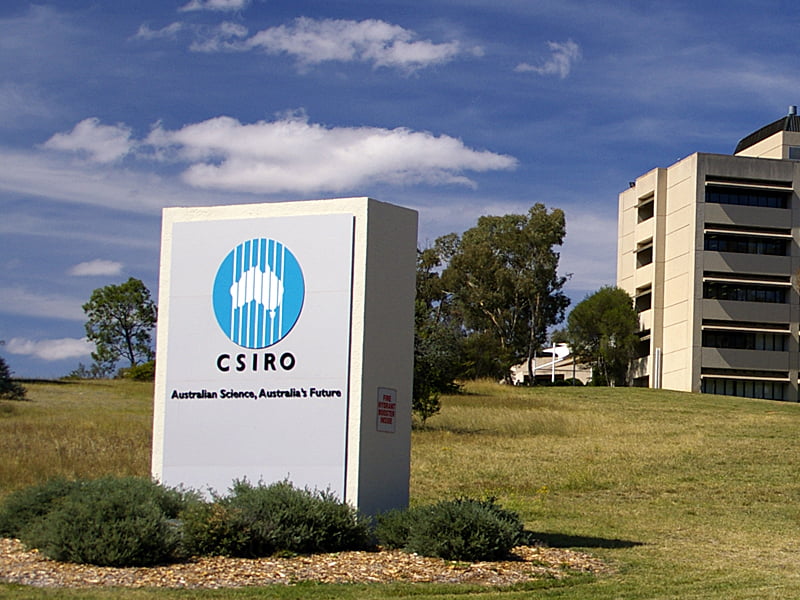The CSIRO will shed 350 jobs and redirect its research priorities as part of a major shake-up under new CEO Larry Marshall, that includes an organisation-wide focus on data science.
The deep cuts announced by Mr Marshall yesterday are being characterised as providing a path to growth – a ‘strategic realignment’ – in which overall headcount will remain the same even while 175 current CSIRO staff are made redundant per year over the next two years.
“Turnover is essential for a healthy business, there must always be an advancement path for growth, and opportunity for new people to join CSIRO,” Mr Marshall said in a 2,000 word email to all staff. “This does not in any way diminish the importance of work done in the past.”

Controversially, the deepest cuts are being made to areas of climate research where the CSIRO has earned recognition as a genuine leader. The shift in strategic priority, away from measurements and modelling of climate change and toward research that helps mitigate the effects of that change, caused an instant out-cry from the research community.
And while Data61 will continue to lose staff as the former NICTA operation is further integrated into the body of the CSIRO, it is clear that the overall funding and focus on data science has been dramatically lifted across the organisation.
It might be an overstatement to say Mr Marshall is remaking the CSIRO in his own image, but certainly the restructure is a clear reflection his 25 years’ private sector experience in Silicon Valley on the corporate and capital sides of the tech ecosystem.
The result is that while Data61 headcount is reduced, its influence within the broader CSIRO is dramatically increased. And the data capability within each of the other CSIRO business units will be ramped up.
This is a fundamental shift for the organisation. In fact, Australian research more generally has treated the information sciences as a poor cousin – more of a support service for research than a focus in itself as a driver of more innovative research.
This is the strategic shift at the heart of the Marshall Plan that he is clearly hoping will also drive cultural change throughout the business.
“Digital technology will disrupt every Australian industry and each part of our business must reinvent itself to help Australia respond to this global challenge,” Mr Marshall said.
“This is why Data61 was the lynchpin of our new strategy, and many of our new investments are channeled through our existing business units to drive collaboration with our new digital business Data61.”
Big Data and its application across industries is a “clear priority” for the organisation and for the Turnbull Government, and its application across the CSIRO is matched as a priority.
“What science can we create that will help our nation adapt to and even benefit from digital disruption? Clearly Cybersecurity, open data, and anonymisation of data sets are the gel that will enable greater sharing of data to deliver better outcomes faster.”
He outlined investment plans for Big Data projects across agriculture and agribusiness, the environment, energy, resources and health. And of the on-going work on the Square Kilometre Array (“the biggest science project in the world.”)
The new areas of investment will include new hires and the development of new skills.
Mr Marshall has tried to separate the ‘realignment’ announced yesterday from the ongoing restructures at the CSIRO over the past several years as the organization has reduced headcount to match funding cuts.
“I am mindful that CSIRO has had significant changes over recent years. This is not a repeat of the major change we had several years ago, and to put this planned transition into perspective, on average over a number of years we have had 220 people per year leaving CSIRO through redundancy.,” he said.
“While I know that a smaller number of job losses in no way diminishes the pain of losing team members and friends, it is something that we must do to renew our business.”
“We must pick and choose where to prioritise. This means as we focus on new areas we must stop other areas. Our people are innovative and many can reinvent themselves to learn these new areas. We will need new people with new skills to help us navigate this new future.”
Unsurprisingly, the influence of Silicon Valley is never far from the surface of the Marshall email and the CSIRO’s strategic plan, with lots of the Turnbull-esque talk about “embracing” the future.
In the year and a bit since Mr Marshall took the helm, he has made moves to bringing tech startup structures and methodologies to the organisation.
The lukewarm internal reception to his deep tech accelerator program known as ON is an indicator the tough job ahead. But if part of the challenge is about language, then it is fair to say Mr Marshall is bringing the language of the startup into the organisation.
“In Australia we worry a lot about failure and spend too much time analysing rather than doing,” he told staff.
“Startups work faster because they dare to try new things and measure in real time whether they are working, and they are not afraid to change or pivot to deliver the best outcome. We must not be paralysed by our past.”
“Indeed, just like a startup, our nation needs to re-invent itself (pivot) in order to navigate a new and uncertain future. Our nation needs us to create the science to enable the innovation for this profound reinvention.”
“It’s personally a tough message for me to share as I joined CSIRO with a growth objective and one which I don’t resile from. However I also know that we need to evolve our capability to meet global market changes in order to deliver on our mission for Australia.”
Do you know more? Contact James Riley via Email.

